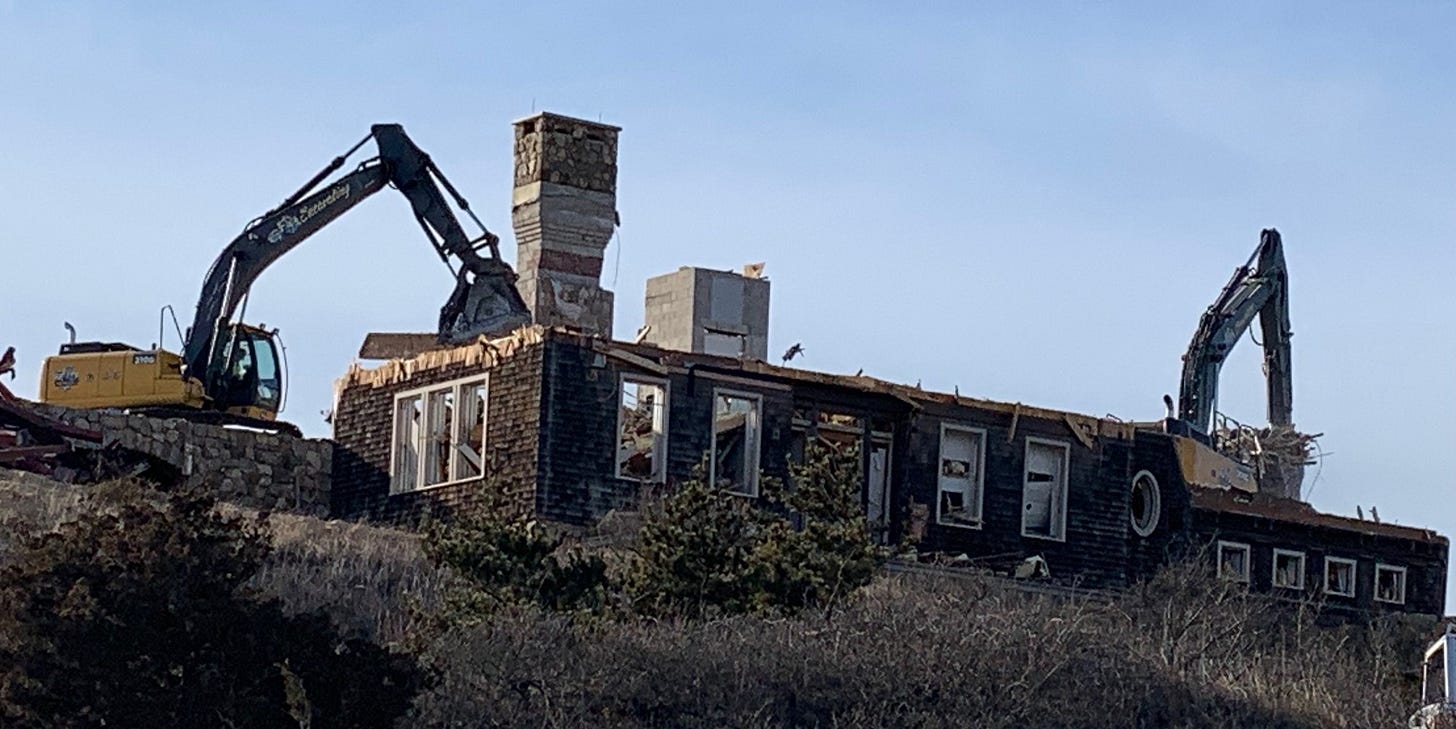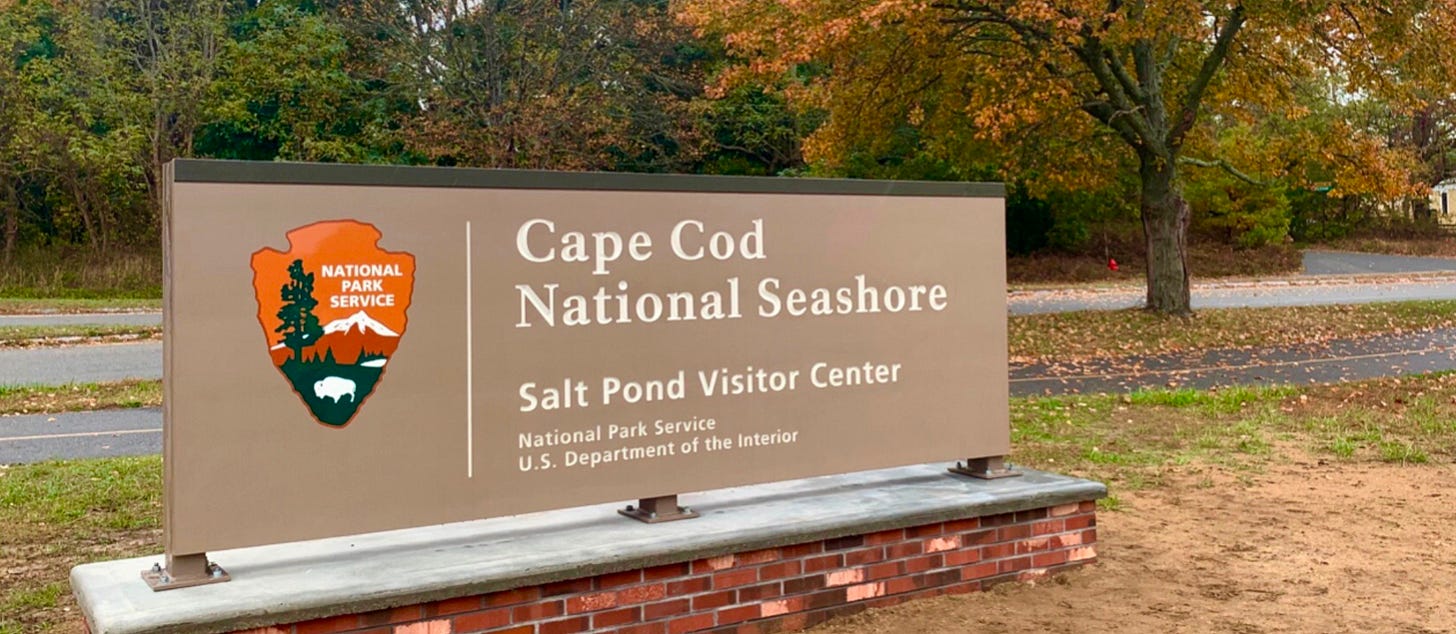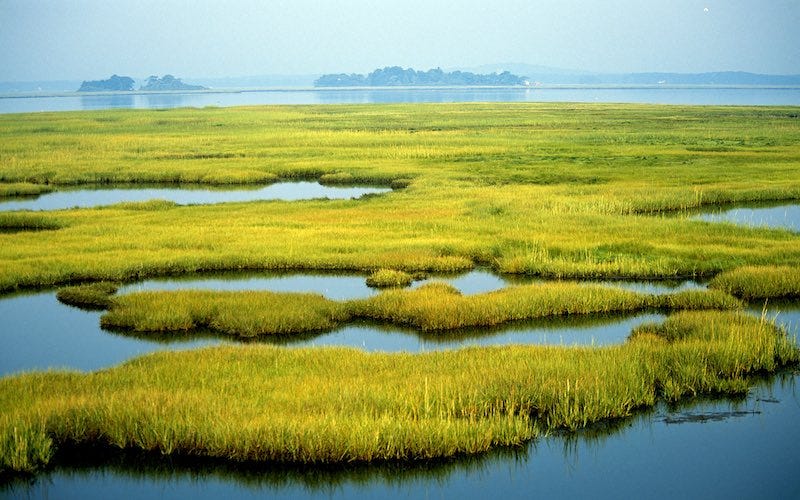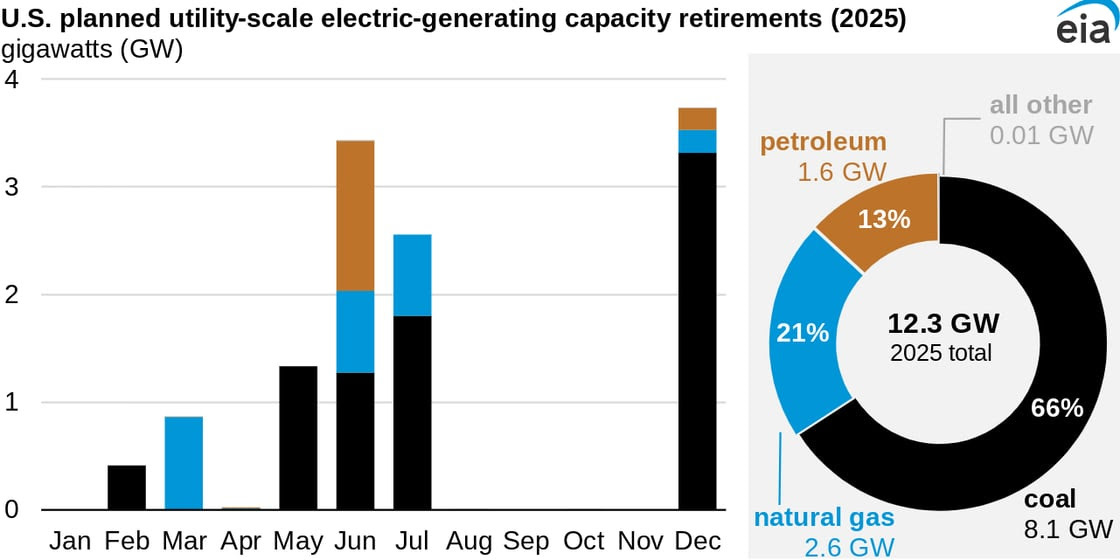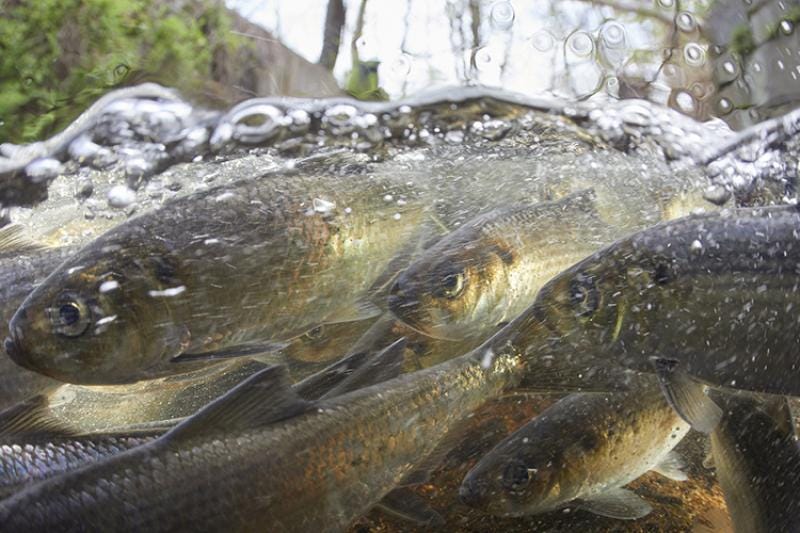Feb 28: Right whales are back, painful cuts at NOAA, and you name the Gulf
Also, join Mass Audubon on March 8 for the Natural History Conference
NOTE: The table of contents items below are linked to the articles, but this feature only works if you are reading the post in Substack while logged in - apologies for the inconvenience.
In this issue:
Cape & Islands
70 right whales sighted so far in Cape Cod Bay; 10 new calves as of February 11
Federal hiring freeze hits the National Seashore Park Service
Massachusetts
United States
‘Cruel and thoughtless’: Trump fires hundreds at US climate agency NOAA
The National Hurricane Center set an all-time record for forecast accuracy in 2024
International
Key outcomes agreed at the resumed UN biodiversity conference (COP16) in Rome
It’s here — Mercedes launches car with solid state battery; expected range of 620 miles
Surge in marine heatwaves costs lives and billions in storm damage – study
Meanwhile, HSBC says bias against (poor, sad) fossil fuels must end
Events and Activities
Mar 8, West Barnstable — Mass Audubon’s Natural History Conference
Mar 25, Orleans — Climate change — what homeowners should know and do
APCC: Volunteers Needed for 2025 River Herring Count Across Cape Cod
Conservation Calendar — great outdoor and indoor activities this week
Cape & Islands
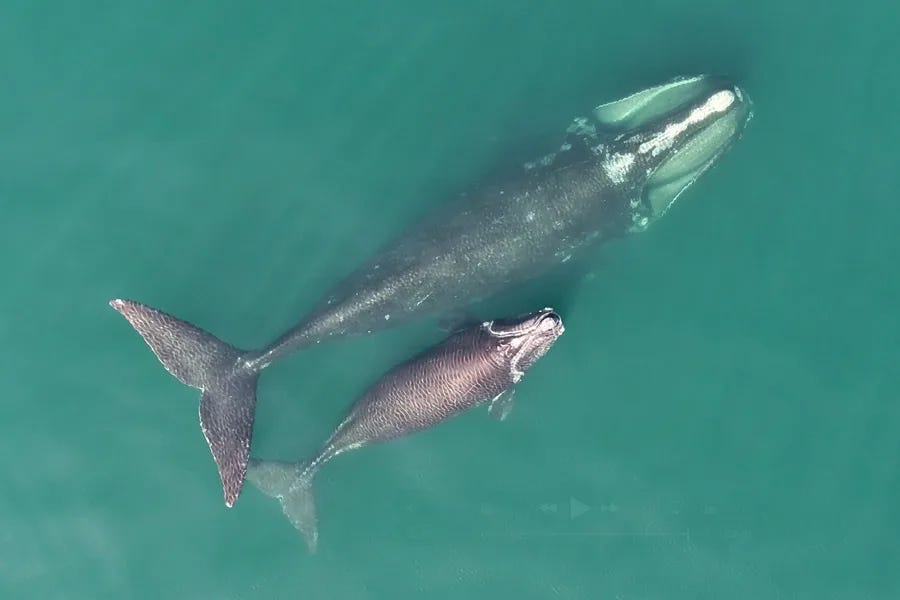
Dozens of endangered North Atlantic right whales return to Cape Cod Bay
10WJAR, by Nick Russo, Feb 26, 2025
Critically endangered North Atlantic right whales have returned to Cape Cod Bay in large numbers already in 2025.
The Center for Coastal Studies (CCS) reports more than 70 individual right whales have been sighted so far in 2025 in Cape Cod Bay, almost one fifth of the total population. Right whales visit the bay every year from late winter through early spring to feed on abundant zooplankton in the bay this time of year. Full story.
Center for Coastal Studies Whale Walks, coming in April
“Keep an eye out for our upcoming Right Whale Emergency Initiative newsletter for more coverage of this season's activities.”
Don't miss the chance to see right whales from the beach on one of CCS' Whale Walks.
10 new calves so far this year
Discover Wildlife, by Melissa Hobson, Feb 12, 2025
“In 2025 there have been ten new calves, as of February 11th,” says Michael Moore, a marine biologist at Woods Hole Oceanographic Institution (WHOI) who has been working with North Atlantic right whales for decades. This, he says, is “better than some recent years, less than others.” Full story.
Controversial Wellfleet home, at the edge of an eroding bluff, gets demolished
Above, the Blasch House in January 2025. Below, the house being demolished this week.
A steady stream of rubberneckers strolled around the Gut in Wellfleet Harbor on Monday, February 24, craning their necks to watch as enormous grabber cranes smashed the walls of the mansion built on the eroding dune. Smiling and chatting, several onlookers said they were pleased that the house that threatened to tumble into the harbor, was being taken down.
CAI | By Eve Zuckoff, Feb 25, 2025
Known locally as the “Blasch House,” after the original owners who had it built in 2010, the house and its predicament have long been the subject of controversy. In 2022, John Bonomi bought the house from the Blasch family for $5.5 million. Both owners had sought approval to build a seawall to protect the eroding bluff, but the town of Wellfleet rejected the proposals, citing existing state regulations and negative impacts such coastal armoring could have on the surrounding beach.
Bryan McCormack, a coastal processes specialist with Woods Hole Sea Grant and Cape Cod Cooperative Extension, wrote a report for Wellfleet last year that found the bluff had eroded by more than 50 feet in the last decade. The current erosion rate is 3.8 to 5.6 feet a year. Given that, he wrote, the house would likely tumble into Cape Cod Bay within three years if nothing was done. If that were to happen, thousands of pounds of debris – not only heavy wood and metal construction materials, but toxic chemicals from fiberglass, refrigerants, and other sources – could end up in Cape Cod Bay, and destroy nearby oyster beds. Full story.
Cape Cod National Seashore could be short of lifeguards, rangers, cleaners from Trump hiring freeze
CAI | By Jennette Barnes, Feb 13, 2025
National parks, including the Cape Cod National Seashore, may be staffed at lower levels this summer due to the Trump administration's hiring freeze.
It’s unclear if the Seashore will be able to hire seasonal staff, including lifeguards and the rangers who conduct many of the park’s educational programs. The National Park Service has already rescinded roughly 400 seasonal job offers across the country, The Washington Post reported in January.
A National Park Service spokesperson told CAI the agency does plan to hire for “key positions” at the parks, but the person did not answer questions about specific job categories.
Paul Niedzwiecki, CEO of the Cape Cod Chamber of Commerce, said it’s hard to believe the Cape Cod National Seashore could function normally without seasonal staff.
“It might be difficult for them to physically open parts of the park without the seasonal help that they usually have for the summer,” he said.
Some two-thirds of the staff are seasonal, according to David Bernstein, board president of the nonprofit Friends of the Cape Cod National Seashore. Year-round staff number in the low 50s, and the Seashore hires 100-110 people for the summer, he said.
Summer staff include lifeguards, rangers, shuttle drivers, people who do cleaning and maintenance, and public safety personnel. Full story.
Excerpts from a “special message of resolve” from Woodwell’s President and CEO Dr. R. Max Holmes
By R. Max Holmes, Feb 19, 2025
…We are far from alone in working to advance scientific understanding of our planet and propel us toward a healthy, equitable, sustainable future (thank goodness). This is work that takes a rich ecosystem of actors each playing their part, from corporations to non-profits, academic institutions to federal agencies. Those federal agencies have been prominent in our thoughts and conversations, as well as headlines, in recent weeks…
NASA, NOAA, NSF, USGS, EPA, USDA, NIH, DOE … the list goes on. Not everyone knows what all these acronyms stand for, but collectively, these federal departments and agencies conduct essential research, provide tools beyond the capacity of any individual organization, and distribute tens of billions of dollars in research funding…
As federal employees face unprecedented challenges, I want to express my heartfelt gratitude for all that they do. They are shining examples of public servants. They make our country stronger and our world a better place. Read the entire message here.
Massachusetts
The annual conference of the Massachusetts Association of Conservation Commissions is one of the largest environmental conferences of its kind in New England
CAI | By Gilda Geist, February 26, 2025
This Saturday is the annual conference of the Massachusetts Association of Conservation Commissions.
Amy Ball, president of the association, says this is one of the largest environmental conferences of its kind in New England.
CAI's Gilda Geist spoke with her recently to learn more about the conference, and how the current presidential administration could impact the work of conservation commissions in Massachusetts.
Amy Ball: First thing I need to point out is that MACC is a nonpartisan organization. We've been through many administrations that are friendlier or less friendly to environmental protection, but I think there are a lot of us in the conservation circles here in Massachusetts who are increasingly anxious. I think one of the bigger concerns right now is for the potential impacts to federal funding that support some of our environmental initiatives at the state and local levels, particularly for things like restoration projects that are often supported through federal grant funding.
United States

‘Cruel and thoughtless’: Trump fires hundreds at US climate agency NOAA
The Guardian, by Dharna Noor and Gabrielle Canon, Feb 27, 2025
The Trump administration has fired hundreds of workers at the National Oceanic and Atmospheric Administration (NOAA), the US’s pre-eminent climate research agency housed within the Department of Commerce, the Guardian has learned.
An anonymous staffer called the laid-off workers “dedicated, hard-working civil servants who came to NOAA to help protect lives and keep our blue planet healthy”.
It is not only laid-off employees who will be harmed by the cuts, the second worker said. Ordinary Americans who rely on NOAA’s extreme weather forecasts, climate data and sustainably-monitored fisheries will also suffer.
“Words can’t describe the impact this will have, both on us at Noaa and on the country,” the employee said. “It’s just wrong all around.”
Andrew Rosenberg, former deputy director of Noaa’s National Marine Fisheries Service, said Thursday was a “sad day”.
“There is no plan or thought into how to continue to deliver science or service on weather, severe storms and events, conservation and management of our coasts and ocean life and much more,” he said. “Let’s not pretend this is about efficiency, quality of work or cost savings because none of those false justifications are remotely true.” Full story.
And lest there be ANY doubt:
The National Hurricane Center set an all-time record for forecast accuracy in 2024
But the investments in hurricane research that led to the new record are threatened by proposed budget cuts.
Yale Climate Connections, by by Jeff Masters, Feb 26, 2025
Finally, there’s some good news to report from NOAA, the parent organization of the National Hurricane Center, or NHC: During the highly active 2024 Atlantic hurricane season, the NHC made record-accurate track forecasts at every time interval (12-, 24-, 36-, 48-, 60-, 72-, 96-, and 120-hour forecasts), according to the preliminary 2024 NHC Forecast Verification Report released on Feb. 24.
And 2024 research suggests that the research dollars spent since 2007 on improved hurricane forecasts could have led to over $10 billion in combined benefits just for the two major hurricanes that hit in 2024, Helene and Milton. But the budget for hurricane research could be slashed under the Trump administration. Full story.
Nature Conservancy Told to Say ‘Gulf of America’ or Lose Federal Funding
Heatmap, Jael Holzman, Feb 27, 2025
The Nature Conservancy, an environmental nonprofit, was told by the National Oceanic and Atmospheric Administration it had to rename a major conservation program as the “Gulf of America” or else lose federal funding, according to a leaked internal memo reviewed by Heatmap News.
For the last week, the Nature Conservancy has been pilloried by figures in the climate and environmentalist community for changing the name of its conservation program in the Gulf of Mexico region to being a “Gulf of America” restoration program, brandishing what President Donald Trump declared on his first day in office would be the new official U.S. term for the body of water. Trump’s new name has become a First Amendment firestorm as news organizations find themselves split on whether to adopt the term and the White House is punishing outlets — including the Associated Press — for continuing to use the Gulf of Mexico.
We can now exclusively reveal why the Nature Conservancy adopted this fresh Trump branding: They were allegedly pressured into it.
Jennifer Morris, CEO of the Nature Conservancy, sent an email to all staff at the organization this morning stating that the organization’s conservation program in the Gulf of Mexico was renamed to Gulf of America “after receiving clear directives from a federal agency.” “Please know that we did not make this decision lightly,” Morris wrote. Attached to the email was staff guidance claiming the nonprofit “received specific direction from NOAA that we must change all references to the new nomenclature in association with our NOAA funded work in the Gulf.” Full story.
The above was my choice — you can choose your own name here.
U.S. to ramp up retirements of coal-fired power plants
Heatmap, Jessica Hullinger, Feb 26, 2025
Power generators in the U.S. plan to retire 8.1 gigawatts of coal-fired capacity this year, according to the Energy Information Administration. That’s more than double the 4 GW retired last year but less than the 9.8 GW that have been taken offline each year over the last decade. Planned retirements across all sources for 2025 total about 12.3 GW, and coal power retirements account for the largest share at 66%, followed by natural gas at 21%. At the same time, the EIA expects 63 GW of new utility-scale power capacity to come online this year, 81% of which will be solar and battery storage.
International
Key outcomes agreed at the resumed UN biodiversity conference (COP16) in Rome
Carbon Brief, by Aruna Chandrasekhar, Daisy Dunne, Orla Dwyer, Yanine Quiroz, Juliana Viglione, Feb 28, 2025
Countries have agreed at the resumed COP16 talks in Rome to a strategy for “mobilising” at least $200bn per year by 2030 to help developing countries conserve biodiversity.
Nations also agreed for the first time to a “permanent arrangement” for providing biodiversity finance to developing nations, “future-proofing” the flow of funds past 2030.
Faced with a highly unstable geopolitical landscape and a previous set of talks that ended in disarray in Colombia, countries forged a path to consensus on a set of texts in what many nations celebrated as a win for multilateralism in uncertain times.
The agreement on finance comes despite the world’s largest biodiversity donor – the US, which has never been a formal party within these talks – recently deciding to withdraw most of its nature funding in a foreign-aid freeze under Donald Trump. Full story.
It’s here — Mercedes launches car with solid state battery; expected range of 620 miles
Solid-state batteries have been a long time coming. For years, it felt like they were stuck in the experiment phase, but that’s finally starting to change with more real-world applications.
Mercedes-Benz and American battery start-up Factorial Energy have developed a prototype EQS equipped with a solid-state battery. The companies claim it's the "world's first solid-state battery vehicle from a global OEM." It’s already out on the road doing test runs.
The EQS is expected to deliver 620 miles (1,000 kilometers) of range, the automaker announced on Monday. That's an improvement of over 25% compared to the WLTP range of the current EQS 450+ in the U.K., which stands at around 481 miles. The EQS gets a usable battery capacity of 118 kilowatt-hours. Full story.
Learn more about Siyu Huang, Cornell MS ’11, PhD ’13, MBA ’14, founder and CEO of Factorial Energy and Factorial’s 40-amp-hour solid-state battery cell here.

Surge in marine heatwaves costs lives and billions in storm damage – study
Floods, whale strandings and coral bleaching all more likely, say researchers, as 10% of ocean hits record high temperatures in 2023-24
The Guardian, Sophie Kevany, Feb 28, 2025
The world’s oceans experienced three-and-a-half times as many marine heatwave days last year and in 2023 compared with any other year on record, a study has found.
The sustained spike in ocean temperatures cost lives and caused billions of dollars in storm damage, increased whale and dolphin stranding risks, harmed commercial fishing and sparked a global coral bleaching, according to the paper published on Friday in Nature Climate Change.
At least 45 people died in April last year when a dam burst in Kenya’s Rift valley, as torrential rains battered the country. Photograph: Luis Tato/AFP/Getty Images
Like heatwaves on land, a marine heatwave is defined as a period of higher than normal temperature over a longer than usual time. The most recent of these were brought about by human-induced climate change and amplified by El Niño conditions, the report’s authors said, with nearly 10% of the ocean hitting record high temperatures in 2023-24.
“The more regularly our marine ecosystems are being hit by marine heatwaves, the harder it is for them to recover from each event,” said lead author Kathryn Smith from the UK’s Marine Biological Association.One of the most surprising findings in the study, said Smith, was “how much [marine heatwaves] accentuated storms on land and the number of people that were hit by that – hurt, lost possessions, [suffered a] monetary impact or lost their lives”. Full story.
Read the study here.
Meanwhile…
HSBC says bias against fossil fuels must end
Bank joins backlash against green finance with call to acknowledge role of ‘carbon economy’
Telegraph, by Chris Price and Louis Goss, Feb 27, 2025
HSBC has said banks ought to stop penalising clients with large carbon footprints amid a wider backlash against green finance. Full story.
BP expected to scrap renewables target in shift back to fossil fuels
The Guardian, by Julia Kollewe, Feb 24, 2025
BP is expected to ditch a target to ramp up renewable energy generation by 2030 as part of a shift back towards fossil fuels when it presents its strategy to investors this week.
The chief executive, Murray Auchincloss, is poised to tell shareholders that the oil and gas company is scrapping its target to increase renewable generation 20-fold between 2019 and 2030 to 50 gigawatts, Reuters reported. Full story.
Activities and Events
Mar 8, in person — Mass Audubon’s Natural History Conference
Mass Audubon Cape Cod Regional Director Melissa Lowe says she always looks forward to this annual event. “The natural history conference has always been one of my favorite events in large part because of the special opportunity to meet and talk to local scientists one-on-one. It provides a place to learn about the people and local organizations doing important environmental work, to network—and even to inspire for future projects by sharing questions and ideas.”
Coffee and refreshments will be provided, but attendees are encouraged to bring lunch and a coffee mug to reduce waste.
The cost of the conference is $25 per person and $15 for students (with student ID).
Register and purchase your ticket here.
📅March 8, 8:30 am - 3:30 pm 🗺️📌Tilden Arts Center, Cape Cod Community College, 2240 Iyannough Rd, West Barnstable
Mar 25, in person — Climate Change: What Homeowners Should Know & What They Can Do
Hosted by the Orleans and Harwich Climate Action Networks, the Eastham Climate Action Committee
Cape Cod, jutting into the Atlantic Ocean, faces significant threats from climate change, but there are solutions, and you can be part of them.
Join Shelly McComb, Coastal Resilience Specialist for Cape Cod Cooperative Extension and Woods Hole Oceanographic Institution’s Sea Grant, to explore local and global coastal challenges. Shelly, with a background in environmental and sustainability studies, works directly on coastal resilience planning and will share practical strategies for strengthening our communities.
More information here.
📅March 25, 10:30 am - 12:00 pm 🗺️📌Snow Library, Orleans
From APCC: Volunteers Needed for 2025 River Herring Count Across Cape Cod
A reminder that volunteers are urgently needed for the 2025 river herring count at multiple runs across Cape Cod. Locations include Brewster, Barnstable, Dennis, Falmouth, Mashpee, Orleans, Sandwich, and Yarmouth. These counts provide critical data to help protect keystone fish species and assess habitat restoration needs.
Volunteers must be able to travel to their assigned site, navigate uneven terrain, and visually identify fish. Each count takes just 10 minutes and occurs several times a week from April 1 to June 15. This is a great opportunity to support local conservation efforts with a minimal time commitment!
Those interested can sign up now through APCC’s River Herring Volunteer Signup and attend a training sessions in March. More details are available on the Herring Hub website.
Join us in protecting Cape Cod’s herring runs! Sign Up
Wildlife photography, learn about coyotes, and lots of walks — Check out the Cape Cod Conservation Calender HERE
Powered by the “Communications Cohort,” co-led by the Barnstable Land Trust and APCC.






